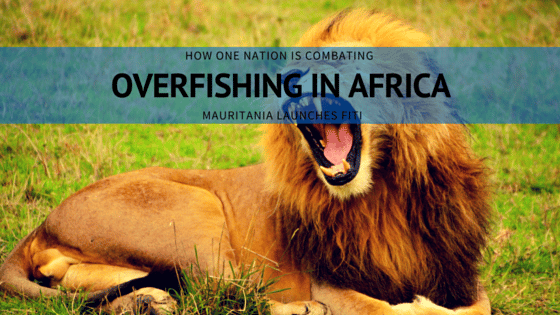The Work Towards Managing Poaching and Illegal Fishing in Mauritania

Mauritania, the 11th largest country in Africa, has an economy that depends on the seafood. In 2013, 28 percent of the population was employed in some way in the seafood industry(1). In 2014, 16.6% percent of the population lived in abject poverty, with high inequality throughout the society. The government has had upheaval, with a military coup d’etat occurring in 2008 which brought Mohamed Ould Abdel Aziz into power.
Why is all this important? It highlights the global nature of seafood conservation. Mauritania relies on Atlantic Ocean fish stocks to provide for its population, and as a coastal nation with less resources than western countries and a population at higher risk against global warming and overfishing, it shows how critical it is for countries to work together to prevent over-fishing. Nations with less resources face difficulties with being taken advantage of by the global markets as well as having a more difficult challenge of protecting their waters from unregulated and illegal fishing.
In February 3, 2016, Mauritania launched the new Fisheries Transparency Initiative (FiTI). Mauritania partnered with the HUMBOLDT-VIADRINA Governance Platform, a non-for profit company based in Berlin which aims to bring together government, business, and civil society in order to solve social challenges and to contribute to sustainable democratic politics.
The Challenges When Protecting Our Oceans and Expanding From Africa
One of the biggest challenges towards preventing over-fishing is secrecy. The aim of FiTi is to promote transparency in the process to ensure that the nation is not being treated unfairly internationally. Coastal communities can lose access to traditional fishing grounds, with high quality, high protein fish going to international markets instead of domestic food production. FiTi seeks to take away the secrecy of confidential contracts, subsidies, investments and aid that fisheries and big businesses receive behind the scenes.
FiTi is not going to stop unregulated fishing entirely. It is a positive step towards reducing the secrecy that makes it difficult to judge whether fisheries are being over-exploited and whether native residents are getting fair access to seafood. It is important to note, however, that FiTi is currently in the conceptual phase.
FiTi bills itself as a “voluntary initiative with mandatory requirements”(2). This leaves ambiguity in what, exactly, will be the mandatory requirements, and what the countries which have currently signed on to the initiative have promised. As well, it is unclear how the initiative will be governed at this point. It can be easier to get countries to sign onto a program which promises to help against over-fishing but is ambiguous on the requirements of governments.
While FiTi is a positive step towards sustainable seafood, it will remain to be seen what concrete effects it will have on helping the population of Mauritania, especially those whose lives depend on the seafood industry.
1 Rapport National sur le Développement Humain – Mauritanie 2015
2 https://fisheriestransparency.org/about-the-initiative
I have always been fascinated by the creation and culture of different foods, particularly sushi and sashimi in the modern era of Japanese cuisine. I am a classically trained chef and sushi connoisseur, also having operated a food service company and enjoy investigating and experimenting with food around the world.